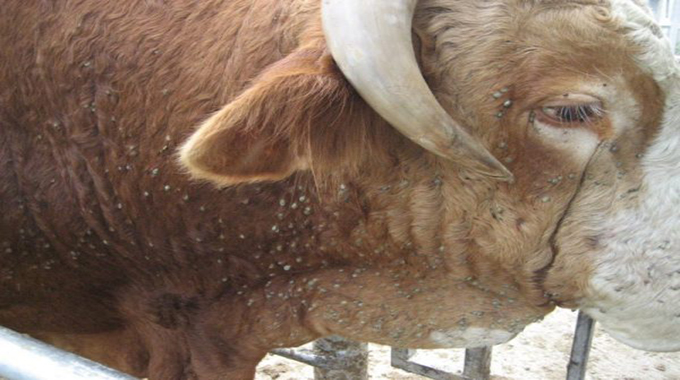
The Sunday News

Dumisani Nsingo, Senior Farming Reporter
MATABELELAND South has not received dipping chemicals in the last 10 months, putting thousands of livestock at risk of tick-borne diseases, an official has said.
Matabeleland South Department of Veterinary Services provincial officer Dr Enart Mdlongwa said the province has not received allocations of dipping chemicals for the past 10 months due to the prevailing foreign currency shortage in the country.
“We are experiencing a poor supply of dipping chemicals and tick-borne diseases are slowly becoming a cause for concern to farmers. We normally ask them to pay a dipping levy of $2 per household for acaricides. That $2 is a subsided offer to Government and collectively it is used to buy the chemicals but now because of foreign currency challenges our last supplies were in April and the dipping sessions are erratic,” he said.
Dr Mdlongwa said failure to dip livestock was leaving the animals prone to a number of tick-borne diseases, chief among them theileriosis (commonly known as January disease), heart water and gall sickness.
“The tick-borne diseases, which are mostly prevalent in Matabeleland region, are mostly heart water and gall sickness and of course there is also theileriosis, which is, however, rife in Mashonaland region,” he said.
Last year, January disease claimed about 50 000 cattle in various parts of the country. The disease, which is caused by the brown ear-tick that usually thrives during the rainy season, is indiscriminate, affecting communal and A1 farmers.
Dr Mdlongwa said there was a need for farmers to take an active role in ensuring the health of their livestock.
“There is a need for farmers to be pro-active and collectively seek ways of dipping their animals before a lot of animals succumb to tick-borne diseases. They also need to approach our veterinary officers dotted throughout the districts and be advised on which acaricides to use so that they don’t compromise the effectiveness of the dipping chemical,” he said.
@DNsingo



